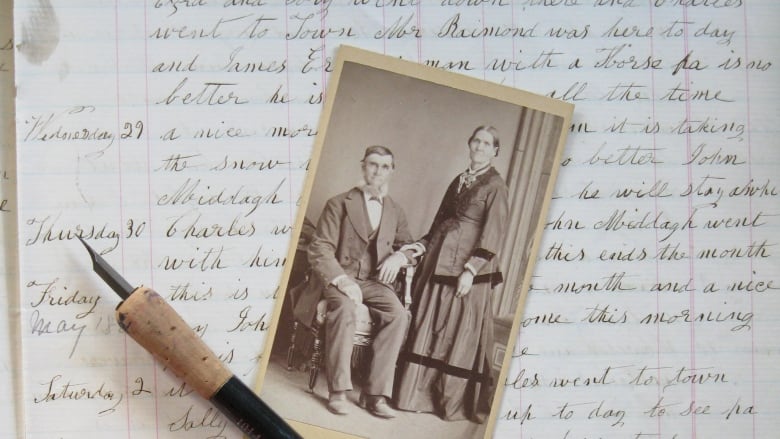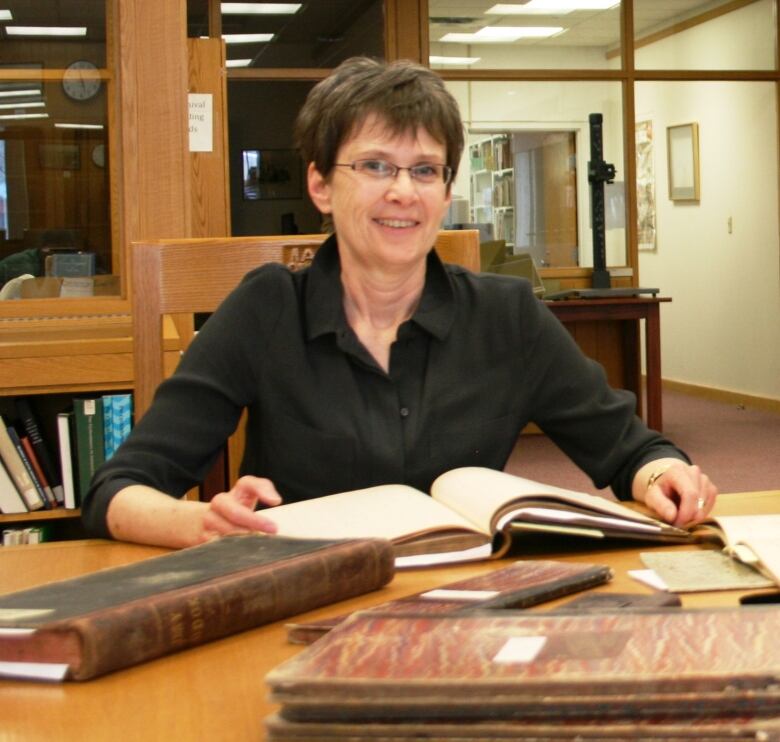Guelph researcher's farm diaries shed new light on rural Ontario life
Transcribed farm diaries reveal surprises about centuries-old farming communities

A Guelph historian is using centuries-old farm diaries to tell the stories of over 150 Canadian farmers and farming communities that existed between the 19th and 20th centuries.
Catharine Wilson, professor of rural history at the University of Guelph, began transcribing the the diaries as a way to piece together the history of rural farming communities in this province.
The diaries were farm account books that held details like what had been produced, what was taken to market, who had come and visited, and who died in the community.

"Although they might at times feel a little bit boring, they do give us a very unique look [at] everyday life," Wilson told The Morning Edition's Craig Norris.
Keeping track
Unlike how we think of personal diaries today, most of the farm diaries were less inward-looking personal accounts, and morebroad overviews of the day-to-day activities of the farmers and farming communities.
"They're telling you about what everybody in the family has been doing that day, and activities in the community more generally," she said.
Wilson saidthat information can be very useful for putting together local and family histories, as well as getting a sense of the community as a whole.
The diarists
Generally, Wilson said, it was the male head of the household who kept the diaries, but women sometimes would write the records.
Regardless of who the family's diarist was, the type of information recorded stayed consistent for the most part.

"You open a woman's diary and you're hoping to find something about housekeeping and childcare," she said. "You might find a little bit, [but] often it's really what the men have been doing on the farm."
The diaries weren't just for keeping track of daily activity;some older diaries were also kept as family heirlooms. Wilson said they carried so much weight that they were often even used to settle disputes in the community.
"You can take them into a court of law and have them as evidence," she said.
Wilson compiled the stories of the diarists in an online platform, the Rural Diary Archives.
Listen to her extended interview with The Morning Edition below.












_(720p).jpg)


 OFFICIAL HD MUSIC VIDEO.jpg)
.jpg)



























































































